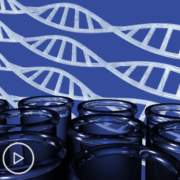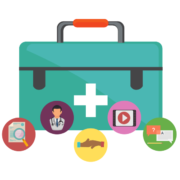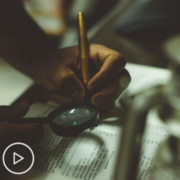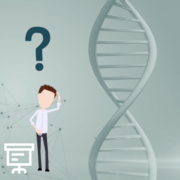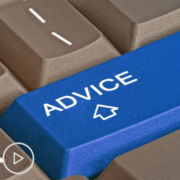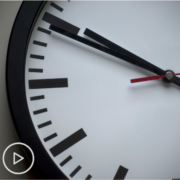It’s October and the pink frenzy is in full force. Breast Cancer Awareness Month (BCAM) is impossible to miss given the pink ribbon avalanche that arrives each Fall. While there is no denying that BCAM has played a significant role over the past two decades in raising public awareness of breast cancer, there is nevertheless growing criticism of its off-balance approach to awareness-raising, with many key messages becoming lost in a sea of “pink-washing.” Interestingly, some studies have even found that pink branding may actually lead the public to take breast cancer less seriously.
“The biggest issue I have with Breast Cancer Awareness month is that it’s not even really awareness,” writes Elizabeth McKenzie, who was diagnosed with breast cancer in 2012. “Awareness is mindfulness of all aspects of breast cancer, which to a certain respect, is different for all of us, based on medical differences in disease processes, treatment access, and personal, social-emotional and cognitive processes.”
Much of the criticism centers on breast cancer campaigns which over-sexualise the disease, equating breasts with womanhood and femininity. Rod Ritchie, who was diagnosed with breast cancer in 2014, points out that “October is a bad time for male breast cancer survivors because the trivialisation and sexualisation of the disease by the pink charities reinforces public awareness that breast cancer is gender specific. Since there’s little attempt to educate men that they need to be aware of symptoms too, we are diagnosed later and have a poorer prognosis. So, how about adding some blue to the pink, encouraging research on us, and screening those with a genetic propensity?”
Over a decade ago on an October morning, I was diagnosed with breast cancer; a double reminder each year of the role this disease has played in my own life. Looking back, I now see that my view of breast cancer was one-dimensional. Standing today on this other side of cancer I see a broader picture, a richer landscape of many shades beyond pink. This post is intended to provide a truer picture of the lives of breast cancer patients in its many varied hues. Wherever you are in your experience, whether you are caring for a loved one, recently diagnosed, finished treatment, or living with a recurrence or metastatic cancer, I hope this post will speak to you.
Lessons We’ve Learned From Each Other
Some of the most valuable lessons I’ve learned about breast cancer have come, not from my doctors, but from fellow patients. My doctors didn’t tell me about the effect of chemotherapy on my future fertility. I didn’t learn that treatment could damage my heart. And I finished treatment with no clue about late treatment side-effects or the risk of a cancer recurrence.
While valuing her oncologist’s expertise, Catherine Foy, who blogs at My Triple Negative Life, acknowledges that “within the online breast cancer community there will be someone awake somewhere in the world that can provide support and advice. For example, based on someone I followed I got my Vitamin D level checked which was very low and I am now on supplements. Other examples include creating awareness of late treatment side effects and reducing the feelings of isolation that some may experience.”
Liz O’Riordan, a breast surgeon diagnosed with recurrent breast cancer, and co-author of The Complete Guide to Breast Cancer, also refers to the feelings of isolation she experienced during her treatment. “I felt incredibly alone during my breast cancer treatment. I didn’t meet another patient at any of my chemo or radiotherapy sessions. All my advice was from amazing people on Twitter,” she says. Liz offers this advice to patients undergoing chemotherapy: “The two best tips I was given to reduce the side effects of chemo were: (1) Drink. Lots. Even when it taste disgusting. Ideally 3 litres a day. Try flavoured water or cordial. Carry a bottle everywhere you go. (2) Exercise. Walk for 30 minutes every day. You’ll hate me for making you. Some days you may have to stop and spit and pant and retch. But do it. You will feel better for it. And they were right. I did feel better.”
Barbara Jacoby of Let Life Happen agrees that we can learn valuable coping lessons from each other. “Whether it is a question of side effects that one is experiencing from a prescribed medication, or questions regarding treatment options or experiences or procedures, if you query a patient support or advocacy group, you are likely to find more answers and information from those who have had actual personal experiences with these issues. There is no doctor or group of medical professionals that has all of the information about real patient experiences and outcomes like any group of actual patients who have dealt with just about anything and everything imaginable on every level,” she says.
Both Catherine and Barbara believe that the information you get online should be shared and discussed with your doctors as the basis of shared decision making (the conversation that happens between a patient and clinician to reach a healthcare choice together). “I value my oncologist’s advice and experience,” says Catherine, “and would usually discuss with him any new developments that I may have encountered through the various platforms on social media.”
Terri Coutee, a two-time breast cancer survivor, and founder of DiepCFoundation, a non-profit organization providing information on options for breast reconstruction after mastectomy, also embraces the concept of shared decision making and wants others to experience it too. “I have had chemotherapy, radiation, two lumpectomies, a double mastectomy and breast reconstruction using my own tissue,” she says. ”Each of these occurrences was fraught with difficult decisions and hours of research to optimize my own health care plan. I left offices of various health care providers with armfuls of brochures and information to sort through and organize.”
Terri encourages patients to download the Breast Advocate App, a new tool to aid the shared decision making process. The app was developed by plastic surgeon Dr Minas Chrysopoulo, whose patient population is primarily those affected by breast cancer or at high risk of developing breast cancer. “Shared decision making is an extremely powerful approach to deciding our treatment plans. Simply put, it empowers us and helps us advocate for ourselves,” explains Terri. “As patients, we owe it to ourselves to embrace everyday conversations with our health care teams,” she says. “The information on the Breast Advocate app is informative, intuitive, and specific to your individual diagnosis or situation. There are treatment options with evidence-based articles to discuss with your healthcare team. It even features a community section. I encourage you to check out the wealth of shared decision-making information and download the Breast Advocate app to your phone.”
Siobhan Freeney, founder of Being Dense, an organization which raises awareness of Breast Density and its associated links to breast cancer and screening, was completely unaware of the issue until she was diagnosed with breast cancer. “40% of women have Dense Breasts,” she explains. “A Mammogram is the only way to determine and measure Breast Density. In Dense Breasts the reliability of screening mammograms can be reduced by as much as 50%.” When you have a Mammogram, the radiologist reading it can tell if you have Dense Breasts. Siobhan recommends you should ask for a copy of your radiology Mammogram report and ask if your breasts are dense. “If you have Dense Breasts you need to know and you should ask your Doctor/Radiologist about more personalised screening such as Breast Ultrasound or MRI,” she advises.
Metastatic Breast Cancer: The Other Side of BCAM
Learning about metastatic breast cancer (MBC; also called stage 4, secondary, or advanced breast cancer) from online blogs and social media networks was revelatory for me. MBC is breast cancer that has spread beyond the breast — to the bones, liver, brain, or another organ. Even if the cancer is found in another organ, it’s still referred to as breast cancer. Like Beth Gainer, who says, she learned “that anyone who’s been diagnosed with breast cancer is at risk,” I too have found, in Beth’s words, “what the metastatic breast cancer community has had to say has been a real eye-opener.”
MBC has been referred to as a story half-told, the other side of BCAM we don’t hear enough about. As Catherine points out, “For me, breast cancer awareness month is for those who are not yet diagnosed or those newly diagnosed. The pink scene looks to future research and provides good information for those starting or in the midst of treatment. There is less focus on those of us living or dying with breast cancer.”
Nancy Stordahl is unequivocal in her criticism of the failure each October to adequately raise awareness of MBC. “Despite all the pink, all the races, all the pink ribbons, most people still know little or nothing about metastatic breast cancer,” she writes. “No wonder so many with metastatic breast cancer feel left out, isolated, alone and yes, even erased.”
Joanne Taylor, a metastatic breast cancer patient and advocate, is pushing for more information and awareness of MBC. She created this infographic to show the red flag symptoms of advanced breast cancer.
While metastatic breast cancer is terminal and cannot be cured, because of improved treatments more women are living longer than ever with it. Even so, many misconceptions and lack of information about this diagnosis persist. “A stranger called Elizabeth Richards contacted me and like many other women she knew very little about MBC, yet the more she found out, the more angry and amazed she became that the illness was side-lined,” says Joanne. “Elizabeth’s view was that as long as metastatic cancer wasn’t mainstream people would not be aware of the limited treatment options available to them. If they knew, they’d demand more.”
One of the biggest misconceptions is that MBC is an instant death sentence. “We thought with BCAM coming up we would do something different to show how people could live well with MBC, so we started the #busylivingwithmets campaign,” explains Joanne. “Elizabeth had the idea, it was positive, it showed what people can do if they have access to drugs and surgery. I was her inspiration! If I can do it, others can as well – if they are given the right options.”
Lessons of Resilience, Connection, and Hope
Cancer can be a lonely and isolating experience, but it doesn’t have to be. “A friend told me to accept whatever help was offered, says breast cancer survivor Connie Rosser Riddle. “It was her way of saying to quit being Superwoman, that it was okay to be in need, vulnerable. It was best to be specific when folks asked, “What can I do for you?” My answer combined what that person was best at and where I needed help, and that made a good fit for both of us.”
Audrey Birt, diagnosed with breast cancer three times, shares lessons of courage, connection and resilience on her blog. “Cancer taught me I’m more resilient than I would have believed, it helped make me braver,” she says. “It also taught me that life cannot be controlled. This made me more able to live in the moment, and for the moment. That’s probably not so good for my bank balance but it’s great for my life balance in a way. It taught me to reengage with writing through my blog and in a funny way it changed my life and connection to others. But it also taught me my fragility and that’s a lesson I’m still learning, one day at a time.”
Ultimately however, the lessons you learn will be unique to you. “There is not a single person, story, book, lecture or talk, which will teach us all we need to know to understand the impact of cancer on our lives. That’s what we have to figure out for ourselves when we go through our own cancer experience,” says therapist, Karin Sieger . “Having been diagnosed twice with breast cancer all I can say is try and stay open minded – to your body, the illness, treatment options. You always have choices. Don’t get stuck in fear and don’t get stuck in complacency either. Live your life to the best of your ability and stay true to who you are – with or without cancer.”
A Stanford Medicine X e-Patient scholar, Marie Ennis O’Connor is an internationally recognized keynote speaker, writer, and consultant on global trends in patient engagement, digital health and participatory medicine. Marie’s work is informed by her passion for embedding the patient voice at the heart of healthcare values. She writes about the experience of transitioning from breast cancer patient to advocate on her award-winning blog Journeying Beyond Breast Cancer.



